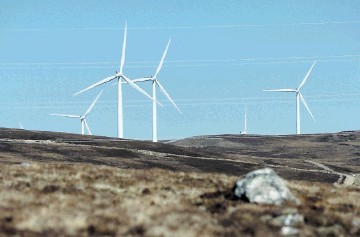
AN ENERGY giant is looking for a company to build a £125million offshore electricity hub as part of its plans for large subsea connections to harness power from renewables.
Scottish Hydro Electric Transmission Ltd (Shetl) wants to build a platform nearly 14 miles off the Caithness coast in the North Sea.
The Moray Firth high voltage direct current hub, which will resemble an oil rig, is part of a larger plan to upgrade the electricity network and bring renewable energy from Caithness to Moray.
cables
Subsea cables will take electricity from a new 600MW converter station at Achanarras, near Spittal, to the coast near Wick and then on to the new hub.
A connection will then be built from the hub to an existing converter station near Keith.
The hub project will cost around £125million and Shetl has received £62milion of European funding towards the cost.
Companies have until January 31 to bid for the contract, which is expected to be awarded by April.
If all goes to plan, the hub itself could be installed by April next year. Construction of the whole link between Caithness and Moray will not be completed until at least 2015.
It is also hoped that eventually the station will also be connected to Shetland. It would be the first time that the islands’ electricity network has been connected to the mainland.
Shetl held a series of public exhibitions last summer to tell local residents about their plans for the converter station at Spittal.
A company spokeswoman said that between 2006 and 2015, the company was investing around £800million in the electricity network.
She added: “There is a significant amount of work needing to be carried out in order to upgrade the network to allow new projects.
“It is still early days for the hub project but we are moving ahead and looking for a contractor. There will also be planning applications being submitted in due course.”
Other upgrade projects planned by the company include the controversial Beauly to Denny power line.
There will also be a subsea link between Orkney and Caithness.
Shetl claims the improvements are needed to cope with the increase in the amount of energy being generated in the north, including from renewable energy developments.
Recommended for you
